Table of Contents
Helen Keller
It was the summer of 1880. A healthy baby girl was born in a small town in Alabama. Her parents loved her dearly and named her Helen Keller. But one day, the baby became ill and day after day, her fever stayed high. Everyone in the family tried to help her to get better, but all they could say was, “There is nothing more we can do. The baby may not live.”
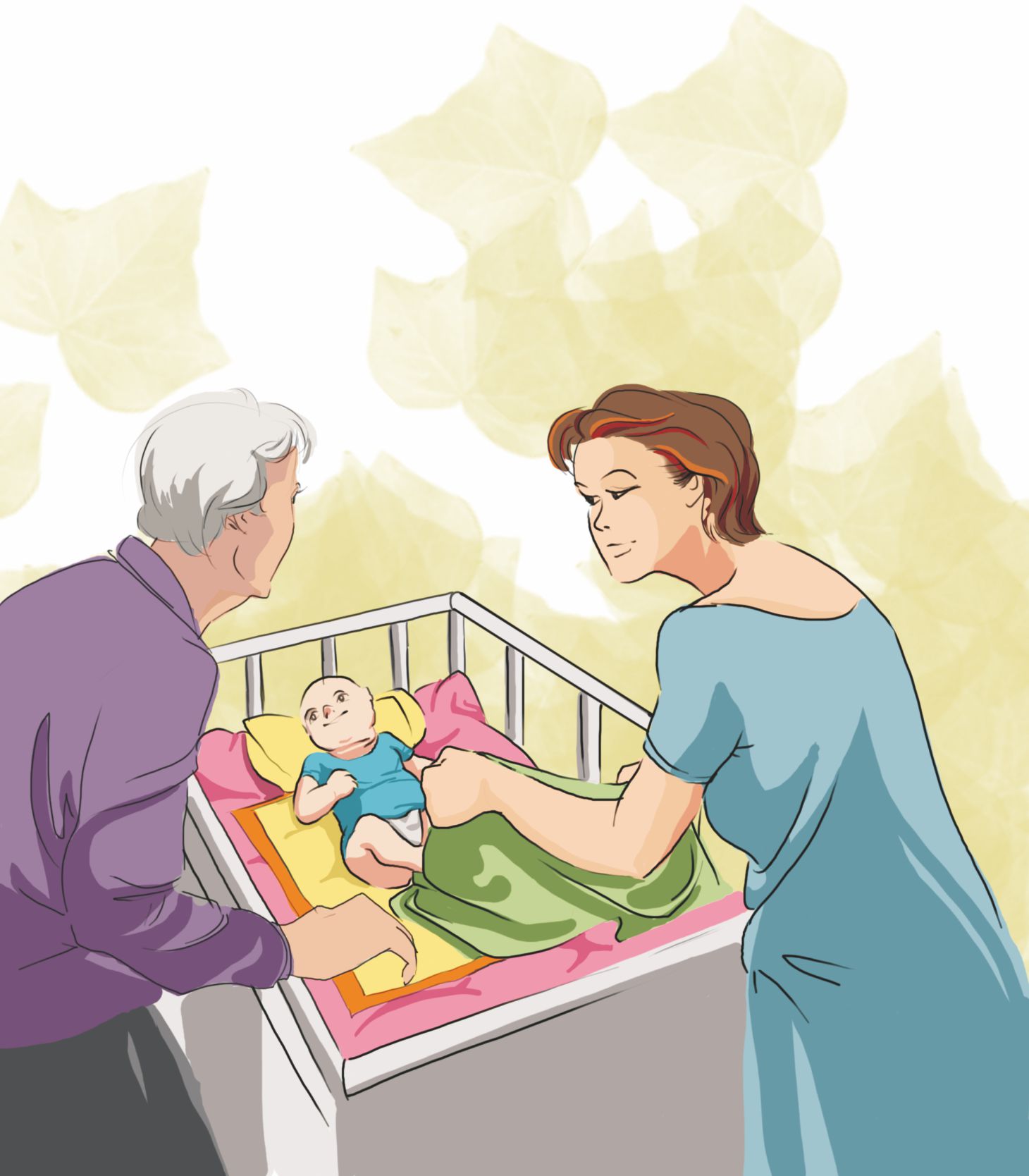
Helen lived. But she was not the same after her illness. “Something is very wrong,” her mother said. At last they found out what was wrong. The child could not see or hear. The baby grew into a little girl. Her parents felt sorry for her. Helen often cried and held on to her mother. “Give the poor child what she wants,” her father would say.
Though Helen could not hear or see, she was a bright little girl. Some people thought Helen could not learn anything. Her mother did not agree. “Helen is very smart,” she said and added, “the problem is, how can we reach her? She is locked up inside herself.”
Helen began to grow wild. She would not let anyone comb her hair. Her clothes were always dirty. She was often angry. Sometimes she even lay on the floor and kicked her feet.
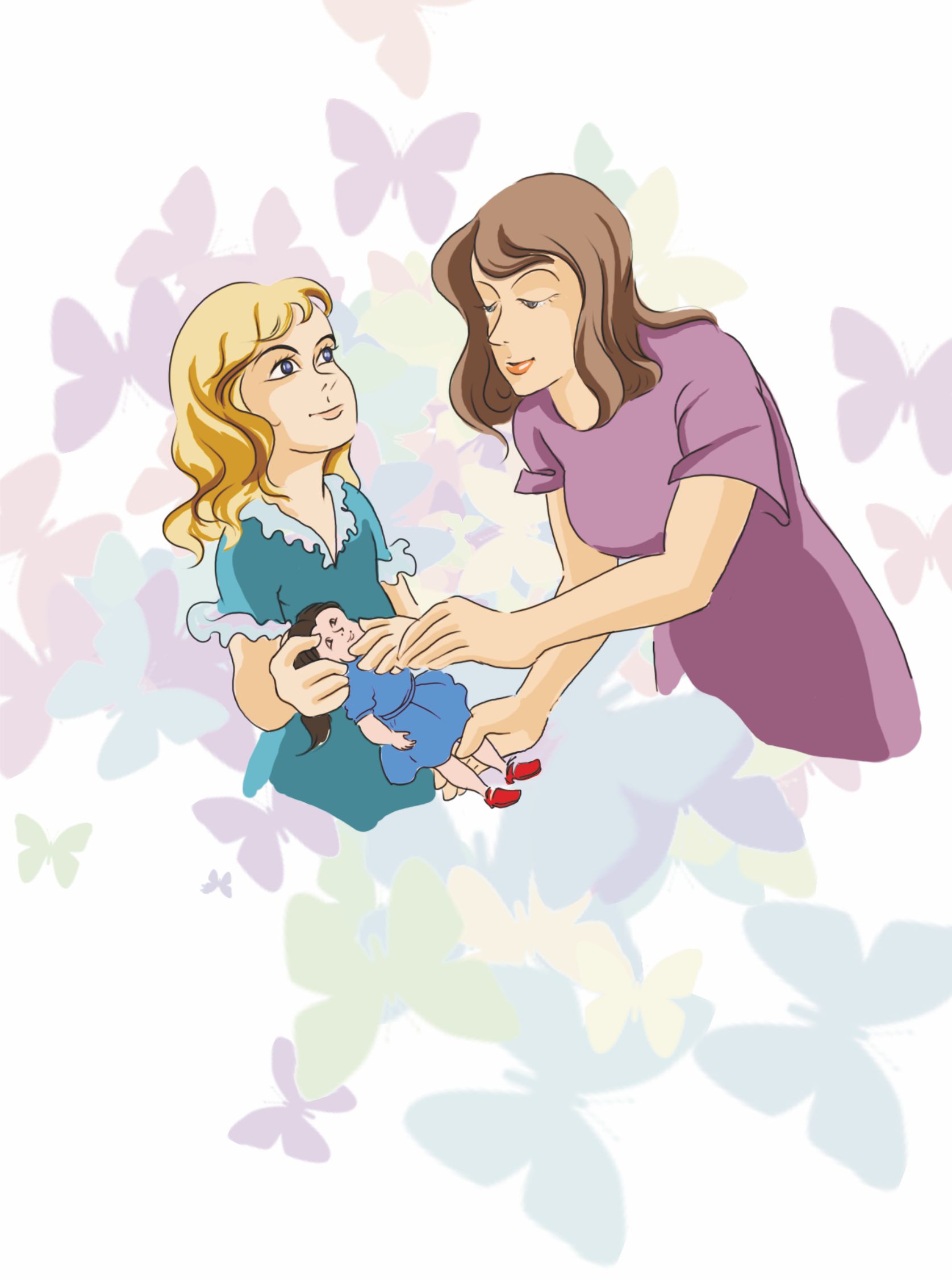
Her parents thought that they should find a teacher for her. Miss Sullivan, a young teacher agreed to help Helen to learn to see the world. Miss Sullivan gave Helen a doll. “D_O_L_L” spells doll. She spelt the word with her fingers into Helen’s hand. She made the letters with special hand signs.
Helen copied her teacher and spelt D_O_L_L too, but she did not understand what she was doing. Helen liked Miss Sullivan. She was strict but kind. She spelt a lot of words for Helen, on her hand, day and night, to make Helen understand.
One day, her teacher made Helen put her hand into running water. Then, she spelt W_A_T_E_R. Suddenly Helen understood that W_A_T_E_R meant something wet, running over her hand.
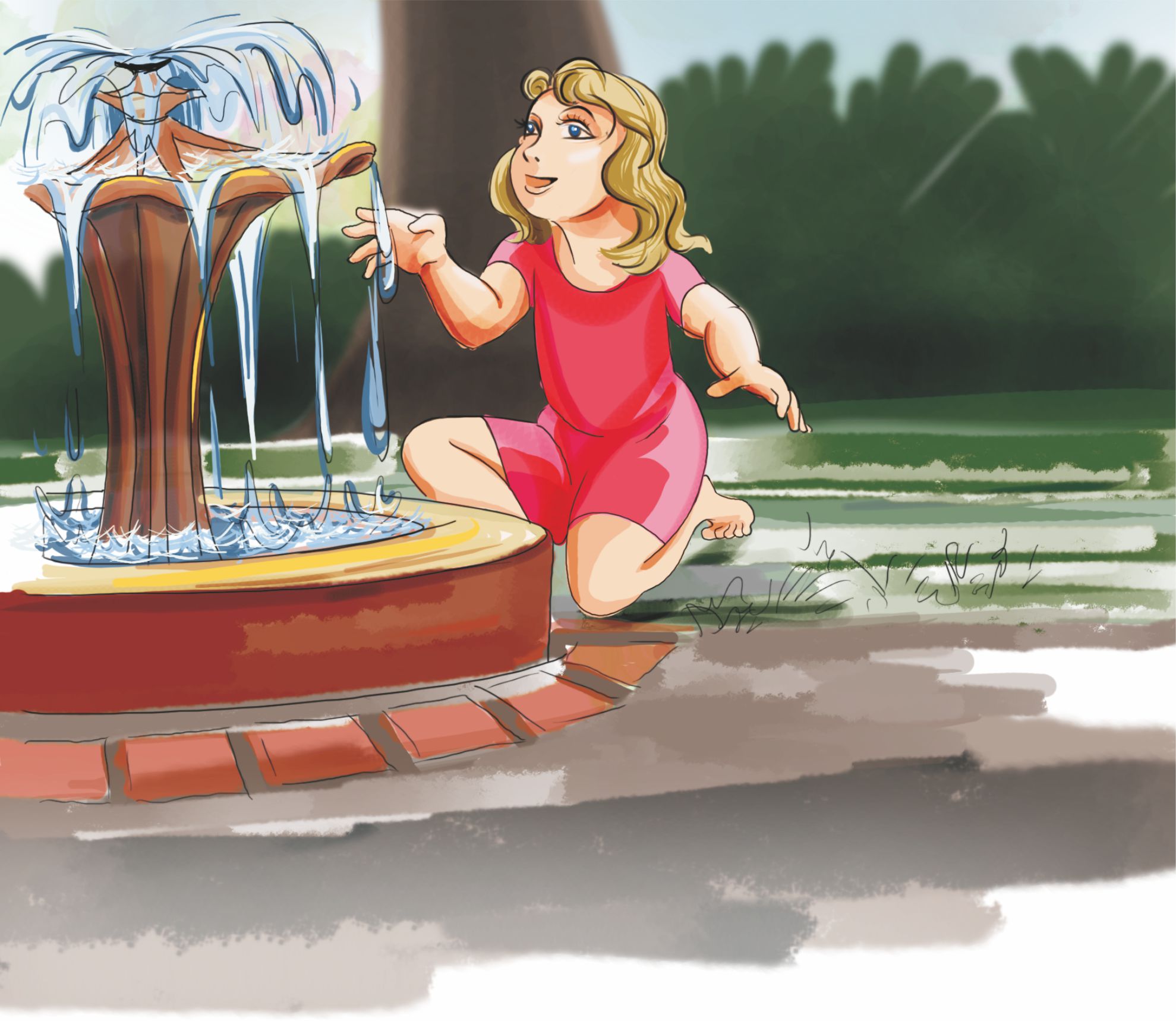
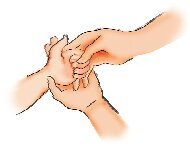
She understood that words were the most important things in the world. Words would tell her everything she wanted to know.
New words
dearly, illness, agreed, important
![4]() Reading is fun
Reading is fun
1. “Something is wrong,” said Helen’s mother. What was wrong with Helen?
2. Although Helen could not hear or see, what kind of girl was she?
3. Who agreed to help Helen?
4. How did Miss Sullivan help Helen?
5. What did Helen learn when the teacher put her hand into running water?
6. What was the most important thing that Helen finally understood?
![9]() Let’s talk
Let’s talk
1. Using sign language make these letters with your hand
‘C’, ‘H’, ‘E’, ‘K’
2. Spell these words through hand signs
(a) Helen
(b) was
3. How do people who cannot see, read?
4. What is the script for people who cannot see called?
5. How do you think you can help children who cannot see?
6. Look at the signs for the letters of the alphabet.
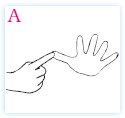
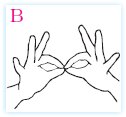
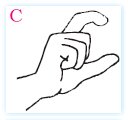
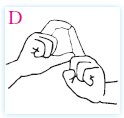
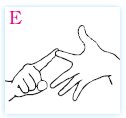
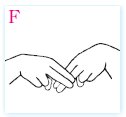
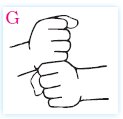
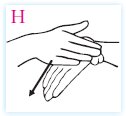
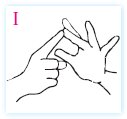
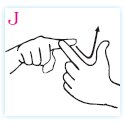
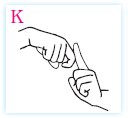
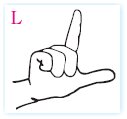
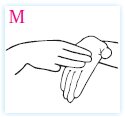
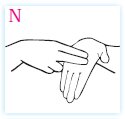
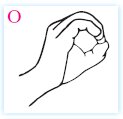
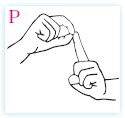
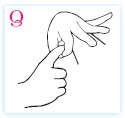
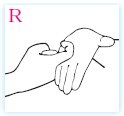
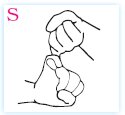
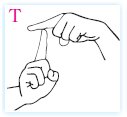
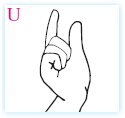
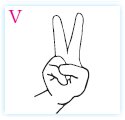
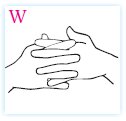
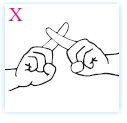
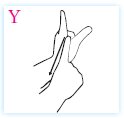
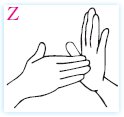
Let’s write
1. Match the two parts of sentences given under column ‘A’ and ‘B’. Add ‘but’ to join the two parts and write complete sentences.
| Column A | Column B |
|---|---|
| (i) Helen lived after her illness | (a) her mother thought she could learn. |
| (ii) She could not see or hear | (b) she did not understand what she was doing. |
| (iii) People thought that she could not learn anything | (c) she could not hear or see. |
| (iv) Helen copied the words | (d) she was kind to Helen. |
| (v) Miss Sullivan was strict | (e) she was very intelligent. |
Team time
1. Read the following sentences
(a) Her clothes were always dirty.
(b) She was often angry.
(c) Sometimes she lay on the floor.
(d) Her parents never scolded her.
2. Ask yourself the following questions. Put a tick (✓) under the right column.
3. Now your friend will ask you the same questions.
| Questions | always | often | sometimes | never |
|---|---|---|---|---|
| How often do you | ||||
| (a) obey your parents? | ||||
| (b) visit your grandparents? | ||||
| (c) fight with your brother or sister? | ||||
| (d) help others? | ||||
| (e) throw waste in the dustbin? | ||||
| (f) switch off the lights, when you go out of the room? | ||||
| (g) leave the tap on while brushing your teeth? | ||||
| (h) tear pages from your notebook? |
Let’s make something
1. From newspapers or old magazines collect stories / reports of courageous children –
(a) Draw pictures of the story
(b) Talk about the stories.
Sing this song together
Pretty Peep
I have a little sister,
They call her Pretty Peep;
She wades in the waters
Deep, deep, deep;
She climbs up the mountains
High, high, high;
My pretty little sister,
She has just one eye.
Who is Pretty Peep?
- r
- a
- t
- s
- A
- :
- r
- e
- w
- s
- n
- A
 Reading is fun
Reading is fun Let’s talk
Let’s talk